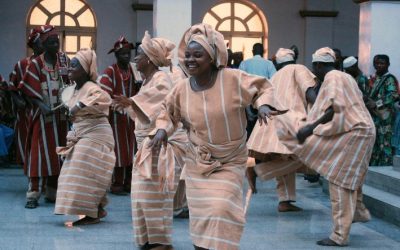Historical Overview of Nigerian Economists
The history of Nigerian economists is a reflection of the country’s evolving economic landscape and development challenges. From early colonial times to modern-day Nigeria, economists have played a crucial role in shaping policies, analyzing economic trends, and advocating for sustainable growth. Distinguished figures have contributed scholarly work and practical insights, helping to guide Nigeria through periods of colonialism, independence, and economic reform. Understanding this historical overview provides valuable context for appreciating the contributions and impacts of Nigerian economists in shaping the nation’s economic trajectory.
Early Pioneers and Their Contributions
Nigerian economists have played a significant role in shaping the nation’s economic policies and development strategies over the decades. Their contributions have ranged from foundational economic theories to practical reforms aimed at addressing Nigeria’s unique economic challenges.
Early pioneers such as Nigeria’s first indigenous economist, Ojetunji Aboyade, laid the groundwork for economic thought and policy in the country. Aboyade was instrumental in advocating for industrialization and diversification of the economy, emphasizing the importance of indigenous participation in economic development. His work influenced subsequent economic policies and inspired many other Nigerian economists.
Another notable figure is Nnamdi Azikiwe, who, apart from his political leadership, contributed intellectually to Nigeria’s economic discourse. His emphasis on education and industrial growth helped shape post-independence economic strategies. Additionally, institutions like the University of Ibadan nurtured future generations of economists who contributed to research, policy formulation, and economic planning.
In more recent times, Nigerian economists such as Ngozi Okonjo-Iweala have gained global recognition for their expertise in finance and development economics. Okonjo-Iweala’s roles as Nigeria’s finance minister and later as Director-General of the World Trade Organization highlight the global influence of Nigerian economic thought and policy practice.
Overall, Nigeria’s economic history is deeply intertwined with the work of pioneering economists whose ideas and policies continue to influence the country’s path towards sustainable growth and development. Their contributions form a vital part of Nigeria’s economic legacy and ongoing development efforts.
Evolving Roles and Influences Over Decades
The history of Nigerian economists reflects a dynamic evolution shaped by the country’s economic developments, political changes, and global influences over the decades. In the colonial era, Nigerian economists primarily focused on addressing economic questions related to resource management and colonial administration, often trained abroad. Post-independence, from the 1960s onward, Nigerian economists began to play pivotal roles in shaping national policies, advocating for self-reliance, and fostering economic independence.
During the oil boom years of the 1970s, Nigerian economists contributed to discussions on resource allocation, revenue distribution, and economic diversification. The subsequent structural adjustment programs of the 1980s and 1990s saw economists becoming involved in efforts to stabilize the economy, promote privatization, and reduce reliance on oil exports. Influential figures like Professor Sam Aluko and others emerged as policy advisors, shaping fiscal policies and economic reforms.
In recent decades, Nigerian economists have increasingly integrated development economics, focusing on issues like poverty reduction, unemployment, and sustainable development. They have also engaged with the global economic community, influencing Nigeria’s stance on international trade and economic policies. Overall, Nigerian economists have transitioned from colonial-era scholars to key policymakers and thought leaders actively shaping the country’s economic trajectory across different political and economic phases.
Educational Background and Academic Institutions
Educational background and academic institutions play a vital role in shaping the expertise and knowledge of economists in Nigeria. These institutions provide foundational training, advanced studies, and specialized research opportunities that contribute to the development of skilled professionals in the field. A strong academic background from reputable universities is essential for economists to analyze economic trends, formulate policies, and contribute to Nigeria’s economic growth.
Leading Universities and Economics Programs
Many prominent Nigerian economists have pursued their academic careers at leading universities around the world, gaining extensive knowledge and expertise in economics. Institutions such as the University of Lagos, Obafemi Awolowo University, and Ahmadu Bello University are renowned within Nigeria for their strong economics programs, fostering the development of local talent. Globally recognized universities like Harvard University, Oxford University, and the London School of Economics have also produced Nigerian economists who have contributed significantly to economic research and policy development. These institutions offer rigorous undergraduate, master’s, and doctoral programs that equip students with critical analytical skills, a deep understanding of economic theories, and practical experience, enabling them to address Nigeria’s economic challenges effectively.
International Training and Collaborations
Many Nigerian economists have pursued their educational journeys through reputable institutions both locally and internationally. They often attend premier universities such as the University of Lagos, Obafemi Awolowo University, and Ahmadu Bello University for their undergraduate and postgraduate studies. Additionally, international training programs offered by institutions like the International Monetary Fund, World Bank, and Harvard University have played a vital role in enhancing their expertise. Collaborations between Nigerian universities and global academic institutions facilitate research, knowledge exchange, and capacity building. These partnerships strengthen the country’s economic policies and ensure Nigerian economists stay abreast of global economic trends and innovative methodologies, ultimately contributing to Nigeria’s socio-economic development.
Key Nigerian Economists and Their Impact
Nigerian economists have played a vital role in shaping the country’s economic policies and development strategies. Their insights and research have contributed to addressing Nigeria’s unique economic challenges, from managing inflation to fostering growth in diverse sectors. Notable figures in this field have influenced both governmental decisions and academic discourse, leaving a lasting impact on Nigeria’s economic landscape.
Prominent Figures and Their Theories
Nigerian economists have played a pivotal role in shaping the country’s economic policies and development strategies. Their insights and theories have contributed significantly to addressing Nigeria’s unique economic challenges, including poverty, inflation, and unemployment.
One of the most influential Nigerian economists is Professor Odgadipo Oluranti Oyebanji, renowned for his work on economic planning and development. His theories emphasize the importance of sustainable growth and the role of government intervention in fostering economic stability.
Another prominent figure is Professor Ngozi Okonjo-Iweala, whose extensive work in public finance and economic reforms has been instrumental in stabilizing Nigeria’s economy. Her advocacy for transparency and fiscal discipline has left a lasting impact on Nigeria’s economic institutions.
Professor Akin Femi-Ajayi is notable for his contributions to development economics, focusing on poverty alleviation and rural development. His theories support the idea that empowering local communities is vital for Nigeria’s long-term economic progress.
In addition, Professor Pat Utomi has been a critical voice in Nigerian economic discourse, promoting entrepreneurship and innovation. His theories revolve around creating a vibrant private sector as a driver of economic growth and diversification.
These figures and their contributions underscore the diverse perspectives and innovative ideas Nigerian economists bring to the table, shaping policies that aim to enhance economic resilience and social welfare in Nigeria.
Contributions to Policy and Development
Nigerian economists have played a vital role in shaping the country’s economic policies and fostering development. Prominent figures like Prof. Ngozi Okonjo-Iweala, who served as Nigeria’s Finance Minister and later as the Director-General of the World Trade Organization, have been instrumental in implementing financial reforms and advocating for economic stability. Dr. Kingsley Moghalu, with his expertise in international relations and development economics, has contributed to policy discussions on financial inclusion and innovation. Additionally, Prof. Pat Utomi has been a leading voice in promoting entrepreneurship and economic empowerment, encouraging sustainable growth. These economists have significantly impacted Nigeria’s economic trajectory through their research, policy advocacy, and leadership, helping to address challenges such as inflation, poverty, and economic diversification. Their work continues to influence Nigeria’s development strategies, shaping a more resilient and inclusive economy.
Current Trends and Challenges in Nigerian Economics
Economists in Nigeria are navigating a dynamic landscape characterized by emerging trends and significant challenges. The country’s economy faces issues such as fluctuating oil prices, inflation, and unemployment, while also exploring opportunities in sectors like agriculture and technology. Understanding these trends is crucial for developing effective policies and fostering sustainable growth in Nigeria’s economic future.
Economic Diversification and Innovation
Economists in Nigeria are increasingly focusing on identifying and addressing the current trends and challenges within the country’s economy, emphasizing the importance of economic diversification and innovation for sustainable growth.
- Economic reliance on oil exports remains a major challenge, making Nigeria vulnerable to global oil price fluctuations.
- There is a growing push towards diversifying the economy by investing in sectors such as agriculture, manufacturing, and technology.
- Innovation is seen as a key driver for economic development, encouraging entrepreneurs and startups to develop solutions tailored to local needs.
- Inflation, unemployment, and infrastructural deficits continue to hinder economic progress and require strategic policy interventions.
- Emerging digital technologies and fintech are transforming financial services and creating new opportunities for economic participation.
- Adopting policies that promote private sector-led growth and reduce dependency on oil revenues.
- Enhancing education and skills development to foster a culture of innovation and entrepreneurship among Nigerians.
- Strengthening institutions to improve governance, transparency, and the business environment.
- Encouraging sustainable practices and renewable energy investments to address environmental concerns and energy security.
- Building resilient economic structures capable of withstanding external shocks and global market changes.
Addressing Poverty and Inequality
Economists in Nigeria are currently focusing on the pressing issues of poverty and inequality, which remain significant challenges to the country’s economic development. Despite efforts to diversify the economy beyond oil dependence, many Nigerians still face limited access to quality education, healthcare, and employment opportunities, exacerbating the wealth gap. One of the key trends is the push towards inclusive growth strategies that aim to lift the poorest populations out of poverty while promoting equitable distribution of resources. However, structural barriers such as corruption, infrastructural deficiencies, and insecure environments continue to hinder progress. Additionally, the rise of digital economies and fintech innovations presents new avenues for economic empowerment, but they also pose regulatory and access challenges that need to be addressed. Overall, Nigerian economists are advocating for sustainable policies that tackle systemic inequalities and foster economic resilience amid fluctuating global markets.
Impact of Globalization and External Shocks
Economists in Nigeria are increasingly focused on analyzing current trends and challenges within the country’s economy, particularly in the context of globalization and external shocks that significantly influence economic stability and growth.
- Globalization has opened up Nigerian markets, leading to increased foreign investment and trade opportunities, but it also exposes the economy to global financial volatility and competition.
- External shocks, such as fluctuations in oil prices, geopolitical tensions, and global economic downturns, pose substantial risks to Nigeria’s revenue, especially given its reliance on oil exports.
- Inflationary pressures and currency devaluations are common challenges faced by Nigerian policymakers in response to external shocks, which can erode purchasing power and increase living costs.
- Economic diversification remains a key goal for Nigerian economists, aiming to reduce dependence on oil and enhance resilience against external shocks.
- Income inequality and unemployment continue to be critical issues, exacerbated by global economic fluctuations and uneven benefits from globalization.
The Role of Economists in Policy Formulation
Economists play a crucial role in shaping effective policies in Nigeria by analyzing economic data, assessing potential impacts, and providing expert recommendations. Their insights help policymakers make informed decisions that promote sustainable growth, reduce poverty, and address economic challenges faced by the nation. In Nigeria, the expertise of economists is vital for designing strategies that balance economic development with social equity and stability.
Advisory to Government and Financial Institutions
Economists in Nigeria play a crucial role in shaping policy formulation, providing vital insights and analysis to inform government decisions and strategies. Their expertise helps in assessing economic conditions, forecasting trends, and designing effective policies to foster economic growth and stability. Additionally, economists serve as advisors to government agencies and financial institutions, offering guidance on fiscal policies, monetary strategies, and development programs that align with Nigeria’s economic goals. Through their research and recommendations, they contribute to creating sustainable economic frameworks and ensuring sound financial management across various sectors.
Development Projects and Economic Planning
In Nigeria, economists play a vital role in shaping effective policies that foster economic growth and stability. They analyze economic data, identify trends, and provide insights that inform government decisions on fiscal, monetary, and developmental strategies. Economists contribute to policy formulation by assessing the impact of various initiatives on different sectors and ensuring that policies are sustainable and aligned with national goals.
During the planning and implementation of development projects, Nigerian economists evaluate the potential economic benefits and costs, aiding in the efficient allocation of resources. Their expertise helps in designing projects that stimulate employment, enhance infrastructure, and promote economic diversification, which are crucial for Nigeria’s development agenda.
Economic planning in Nigeria relies heavily on economists to set realistic targets and develop comprehensive frameworks for long-term growth. They analyze macroeconomic indicators, forecast future economic scenarios, and recommend policies that address challenges such as inflation, unemployment, and foreign exchange management. Through their research and analysis, economists ensure that Nigeria’s economic strategies are robust, inclusive, and geared towards improved living standards for its citizens.
Future Directions for Nigerian Economists
As Nigeria continues to evolve its economic landscape, Nigerian economists play a crucial role in shaping sustainable growth and development. Exploring future directions, they are increasingly focusing on innovative policies, technological advancements, and inclusive strategies to address systemic challenges. Embracing global trends and local realities, Nigerian economists are poised to contribute significantly to the nation’s economic resilience and prosperity.
Emphasis on Sustainable Development
Future directions for Nigerian economists should focus on integrating sustainable development principles into all aspects of economic planning and policy formulation. Emphasizing innovative research on renewable energy, environmental conservation, and social equity can help address the country’s pressing challenges. Nigerian economists have a vital role in promoting inclusive growth that balances economic growth with environmental preservation and social well-being. Building capacity through education and collaboration with international organizations can enhance the ability to design policies that foster long-term sustainability. Additionally, leveraging technology and data analytics will be crucial in crafting evidence-based strategies for sustainable development in Nigeria.
Integration of Technology and Data Analytics
Future directions for Nigerian economists include embracing the integration of technology and data analytics to enhance economic research and policy-making. As Nigeria continues to develop dynamically, leveraging advanced technological tools can improve accuracy, efficiency, and insights in economic analysis.
- Adopting big data analytics to better understand market trends, consumer behavior, and economic patterns within Nigeria.
- Utilizing machine learning algorithms to forecast economic indicators and inform policy decisions effectively.
- Developing digital platforms for real-time economic data collection, dissemination, and monitoring.
- Encouraging collaborations between economists, data scientists, and technologists to foster innovative economic solutions.
- Training Nigerian economists in data science, programming, and digital tools to enhance their analytical capabilities.
- Implementing blockchain technology for transparent financial transactions and reducing corruption risks.
- Promoting the use of mobile and web-based applications for financial inclusion and economic empowerment across underserved communities.
Fostering Local Economic Research and Innovation
Future directions for Nigerian economists should focus on fostering local economic research and innovation to address the unique challenges facing the Nigerian economy. Emphasizing the development of indigenous data sources and context-specific models will enhance the relevance and impact of research. Building stronger collaborations between academia, government, and the private sector can lead to more innovative solutions tailored to Nigeria’s socio-economic realities. Additionally, investing in capacity-building initiatives, such as advanced training and international exposure, will empower local economists to contribute effectively to policy formulation and economic development. Encouraging a culture of entrepreneurship within the economics community can also stimulate innovative research projects that drive sustainable growth. Ultimately, nurturing a vibrant ecosystem of Nigerian economists committed to local research and innovation will be crucial for shaping Nigeria’s economic future positively.





0 Comments